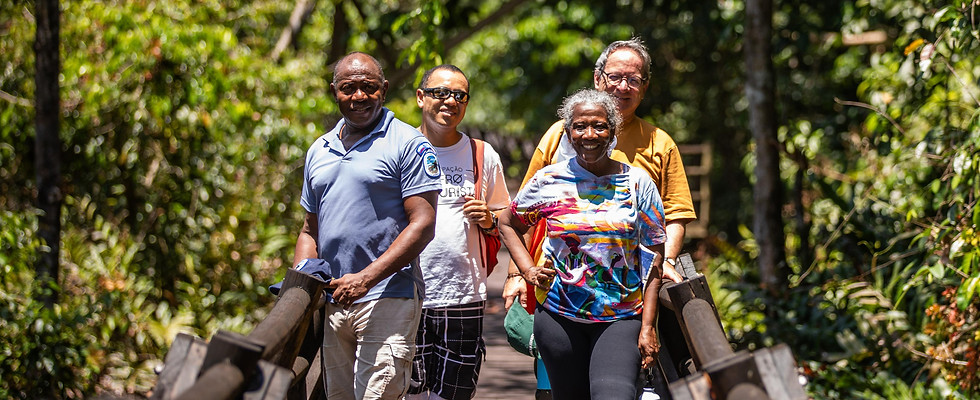
Camino por Colombia – Nuquí
A Journey of Purpose, Knowledge, and Community

From March 11-14 (2025), a group of pilgrims ventured into Colombia’s Pacific region to experience a journey deeply rooted in territory, community, and ancestral knowledge. Far from conventional tourism, Camino por Colombia offered a passage guided by the rhythm of the ocean and the poetic, spiritual, and organizational force of Josefina Klinger and Mano Cambiada.
Each stop along the way became a living classroom. Cooking with Amelia, learning about viche with Diego, sharing wisdom with local leaders, listening to the music of TAMBACUM, or simply following the stories of the rivers that flow into the sea—all of it formed part of an embodied pedagogy where nature, body, and word came together with meaning.
Beyond the emotions awakened by the journey, the group engaged in strategic reflection: Why walk? What can we plant through these encounters? The answer went beyond tourism—it was about mutual transformation. That pilgrims return, yes, but also that they contribute their knowledge, networks, and resources to strengthen local initiatives in education, culture, biodiversity, and solidarity-based economies. For this to happen, future participants must be carefully selected for their potential to support specific areas of impact.
Among the most compelling ideas to emerge was the creation of a Pacific Green School in Utría National Park—a biodiversity lab and library for children from Nuquí and Bahía Solano, with rotating residency and electric boats to ensure access and equity. Other proposals included launching a Teachers Without Borders program, setting up university internships in local entrepreneurship initiatives, and reclaiming disused infrastructure like former Telecom buildings for community use.
The document also recommends practical improvements: sharing the agenda in advance, clearly connecting it to costs, and ensuring that pilgrims actively participate in each interaction. It also highlights the importance of preparing new guides with the ability to lead groups through storytelling, local knowledge, and cultural context—as Josefina does so powerfully.
Next steps include a virtual meeting with all Camino por Colombia actors, identifying initiatives ready to launch, and setting a shared goal for the next pilgrimage in June.
This experience in Nuquí didn’t just offer insights—it lit the path forward. It revealed that another Colombia is already possible: one that doesn’t wait for saviors but believes in the leadership and dignity of its own people. The challenge now is to walk that dream—step by step, with purpose.










